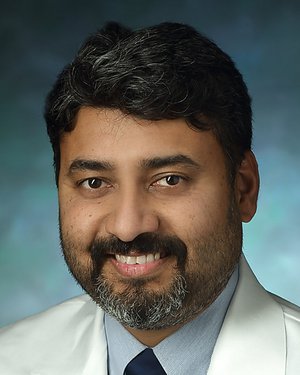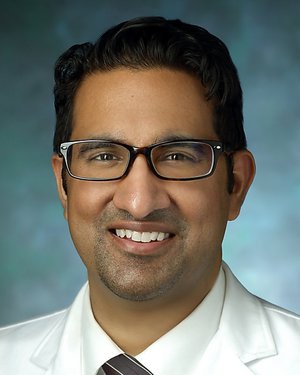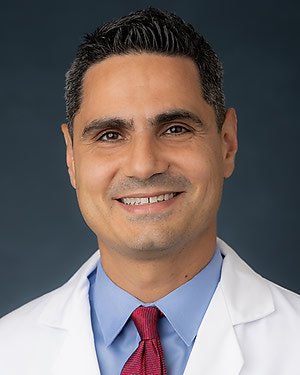Research Lab Results
-
Romsai Boonyasai Lab
Research in the Romsai Boonyasai Lab focuses on systems-based approaches for improving health care quality, including reducing harm during care transitions after hospital discharge and improving outcomes related to hypertension and other chronic diseases. We recently have focused on developing and evaluating practice-based tools for improving the accuracy of blood pressure measurement, overcoming clinical inertia to treatment, and engaging patients in self-management of their health. -
Kristin Riekert Lab
Work in the Kristin Riekert Lab focuses on methods for improving health care quality and delivery, particularly among underserved and disadvantaged populations. Our research covers a range of important topics, including health beliefs, treatment adherence, doctor-patient communication, self-management interventions, mobile health initiatives, health disparities and patient-reported outcome methodology. We also work with the National Institutes of Health on multiple intervention trials focused on improving adherence and health outcomes in asthma, chronic kidney disease, cystic fibrosis (CF), sickle cell disease and secondhand smoke reduction.
-
Pali Shah Lab
Research in the Pali Shah Lab focuses on lung transplants. Specifically, we’re interested in chronic rejection and quality and safety as they relate to lung transplants.
-
Jonathan Weiner Lab
The Jonathan Weiner Lab researches the impact of electronic health records (EHRs), e-health and other health information technology (HIT) on populations, integrated delivery systems and public health agencies.
Principal Investigator
-
John Matthew Austin Lab
Research in the John Matthew Austin Lab explores health care performance measures, with a goal of improving patient care by enabling healthcare providers to view data about their performance, track patient outcomes and comply with best care practices. Our lab is currently working to develop performance measures for the ICU part, and we are part of The Leapfrog Group, an annual survey of U.S. hospitals that compares hospital performance on national measures of safety, quality and efficiency. Our research also explores the use of scientifically sound decision-support tools for guiding improvements in healthcare delivery systems.
Principal Investigator
Department
-
Cheryl Dennison Himmelfarb Lab
Research in the Cheryl Dennison Lab aims to improve cardiovascular care for high-risk groups through multidisciplinary and health information technology-based methods. Our studies focus on reducing system and provider obstacles to implementing cardiovascular guidelines in various health care environments. Additional research interests include chronic illness management, quality of care, interdisciplinary teamwork and provider behavior. -
Zishan Siddiqui Lab
Research in the Zishan Siddiqui Lab focuses on patient-centered care and satisfaction, preoperative medicine and clinical reasoning. We are also interested in international medicine. In a previous collaboration with Daniel Brotman, M.D., we discovered that hospital renovations do not improve patient satisfaction.
-
Lilly Engineer Lab
Research in the Lilly Engineer Lab examines the quality and safety of medical care, with a focus on rural and underserved communities. Our current research evaluates methods for improving immunization rates among inner-city populations of school-aged children. We are also exploring the effect of federal policy changes and health care market forces on rural hospitals in the United States.
-
Mathioudakis Lab
The Mathioudakis lab is focused on developing and evaluating clinical decision support systems, technology, and mHealth for diabetes prevention and management. Our lab leverages large electronic medical record databases and uses machine learning algorithms and artificial intelligence to identify patterns in clinical care associated with optimal clinical outcomes. We are interested in understanding the role that advanced diabetes technologies can play in improving health outcomes for patients with diabetes. Our lab has published extensively on outcomes related to diabetes prevention and diabetes management and outcomes. Based on data from our long-term (over 10 year) clinic-based prospective cohort study from the Johns Hopkins Multidisciplinary Diabetic Foot and Wound Clinic, we have published extensively on clinical predictors and outcomes of patients with diabetic foot ulcers, focusing specifically on the role that glycemic control plays in patients with this complication. Healthcare disparities exist throughout medicine, but are particularly prominent in diabetes; our lab has evaluated healthcare inequities in diabetes outcomes and is developing and evaluating strategies to overcome them. In addition to identify optimal management approach to diabetes and its complications, our lab is interested in development and evaluation of innovative technology approaches to diabetes prevention. -
Neuro-Oncology Surgical Outcomes Laboratory
Directed by Debraj “Raj” Mukherjee, MD, MPH, the laboratory focuses on improving access to care, reducing disparities, maximizing surgical outcomes, and optimizing quality of life for patients with brain and skull base tumors.
The laboratory achieves these aims by creating and analyzing institutional and national databases, developing and validating novel patient-centered quality of life instruments, leveraging machine learning and artificial intelligence platforms to risk-stratify vulnerable patient populations, and designing novel surgical trials to push the boundaries of neurosurgical innovation.
Our research also investigates novel approaches to improve neurosurgical medical education including studying the utility of video-based surgical coaching and the design of new operative instrumentation.



